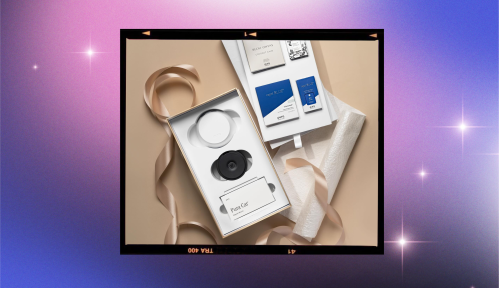Once you’ve found a routine that works for you, sometimes days can feel a little monotonous—wake up, brush teeth, workout, coffee, commute, work, and so on. But making little changes can help activate and work pats of your brain that you don’t exercise when it’s on autopilot, which can make your day to day less boring.
Experts in This Article
Dr. Riddhi Gangolli is a dentist and the Sr. Director of Professional Education and Marketing at SmileDirectClub.
An easy way to do this? Try brushing your teeth with your non-dominant hand. Though that may seem counterintuitive—mornings are already hectic, and having time to brush your teeth for the whole two minutes and floss while running out the door is an accomplishment in and of itself, but challenging your brain this way can lead to better memory, concentration, creativity, and ultimately, longevity.
Why brushing with your non-dominant hand may be helpful for brain health
Enter: neuroplasticity. Put simply, neuroplasticity is your brain’s ability to retrain itself to do things in new and different ways, which helps it stay healthy and grow, and novelty is a great way to encourage this process. And unless you are fully ambidextrous, switching up your daily teeth brushing routine to use your opposite hand forces you to think about what you’re doing.
As a result, your brain develops through mental stimulation, growing and rewiring new neurons and pathways as you learn new things, so this small switch from right to left (or left to right) is a sort of workout for your mind. “Since you’re using the opposite hand, you’re using the opposite side of your brain which can help strengthen that side,” explains Riddhi Gangolli, BDS, PhD, senior director of professional education and marketing for SmileDirectClub.
The downside to brushing your teeth with your non-dominant hand
While brushing your teeth with your non-dominant hand can have positive implications on your brain’s neural connections, there can also be negative implications associated with this practice, according to Dr. Gangolli. Ultimately, your non-dominant hand can lead to less pressure while brushing, which can lead to an increase in plaque buildup.
“Given this, it is best to stick with your dominant hand and try boosting your brain in other ways,” says Dr. Gangolli, who suggests using your non-dominant hand while writing or using your computer mouse, stirring a pot or opening a jar, or even playing catch to strengthen your non-intuitive motor skills.
—reviewed by Smita Holden, MD
Oh hi! You look like someone who loves free workouts, discounts for cutting-edge wellness brands, and exclusive Well+Good content. Sign up for Well+, our online community of wellness insiders, and unlock your rewards instantly.
Sign Up for Our Daily Newsletter
Get all the latest in wellness, trends, food, fitness, beauty, and more delivered right to your inbox.
Got it, you've been added to our email list.











